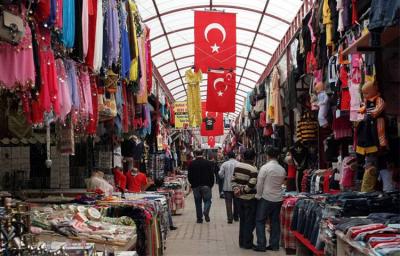Investor hopes for a recovery in Turkish markets dissipated on Monday following Recep Tayyip Erdoğan's strong showing in the first round of the presidential elections held on Sunday. Erdoğan, who has been in power for a long time and is prone to confrontation, achieved a better-than-expected result in this round, giving him a comfortable lead going into the second round on May 28 and silencing discussions about the end of years marked by record inflation and repeated currency crises.
Commenting on the chances of Erdoğan's competitor, Kemal Kılıçdaroğlu, winning and thus leading to a serious change in economic policies, Kiran Kirtis, head of local currency debt at Aberdeen in emerging markets, said, "hope is dead." He added that it is highly likely that supporters of the nationalist candidate Sinan Oğan, who came in third, will shift to support Erdoğan in the runoff, which "means Erdoğan will return."
Kirtis observed, "We have retraced our steps, and this means that foreign currency reserves will continue to decline until we have a set of logical economic policies."
However, others see a positive side to this, as it has become unlikely to question the election results or the potential for civil unrest. But the big question now concerns the fate of economic policies that have increasingly become unconventional under Erdoğan's rule.
The initial market reaction to the election results on Monday was "intense," as the Turkish lira fell to a two-month low, with a steeper decline seen in banking stocks and hard currency government bonds. Analysts indicate that the lira is currently being tightly managed, having lost about 95% of its value against the dollar over the past fifteen years, while fund managers are selling lira-denominated bonds and reducing their holdings in equities.
Omotunde Lawal, head of corporate debt for emerging markets at Barings, predicted that "the next five years will be very difficult for Turkey," citing divisions within society and the risk of further volatility for the lira. She added, "There is a risk that the government may resort to measures such as restricting foreign currency transactions for individuals or companies while trying to control the exchange rate, making things more difficult for businesses."




